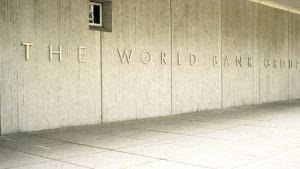 The World Bank is urging Caribbean countries to rethink their approach to governance, as key to overcoming challenges related to security, growth and equity.
The World Bank is urging Caribbean countries to rethink their approach to governance, as key to overcoming challenges related to security, growth and equity.
In a new report titled “Governance and the Law” the Washington-based financial institution explores how unequal distribution of power in a society interferes with policies’ effectiveness.
The World Bank said power asymmetries help explain, for example, why model anti-corruption laws and agencies often fail to curb corruption, why decentralisation does not always improve municipal services; or why well-crafted fiscal policies may not reduce volatility and generate long-term savings.
The report notes that when policies and technical solutions fail to achieve intended outcomes, institutions often take the blame.
However, it finds that countries and donors need to think more broadly to improve governance so that policies succeed.
The report defines better governance as the process through which state and non-state groups interact to design and implement policies, working within a set of formal and informal rules that are shaped by power.
“As demand for effective service delivery, good infrastructure, and fair institutions continues to rise, it is vital that governments use scarce resources as efficiently and transparently as possible,” World Bank Group President Jim Yong Kim said.
“This means harnessing private sector expertise, working closely with civil society, and redoubling our efforts in the fight against corruption. Without better governance, our goals of ending extreme poverty and boosting shared prosperity will be out of reach,” Kim added.
The report identifies three winning ingredients of effective policies namely commitment, coordination and cooperation.
“Government officials do not act in a vacuum. Their decisions reflect the bargaining power of citizens who jockey with each other to advance competing interests,” said World Bank Chief Economist, Paul Romer.
“So, this report launches a very important discussion for governments, their countries, and people in the development community about how we can make sure that society is on a path that’s generating progress.”
